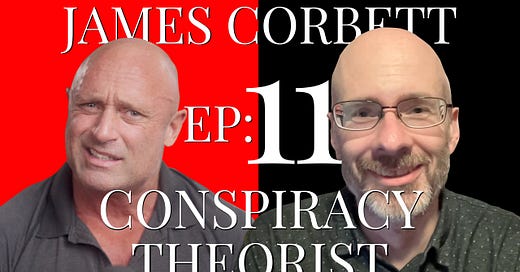
No Books, No Wisdom, No Future
The ancient story is told of Tarquinius, the last of the seven legendary Kings of Rome.
When the pagan goddess Sibyl offered to sell Tarquinius the nine books containing all the world’s wisdom for a high price, Tarquinius refused.
Sibyl then promptly burnt three of the books in front of Tarquinius and offered to sell the remaining six books for the same price.
Refusing to bow to Sibyl’s demands, Tarquinius again said ‘no’, so Sibyl promptly burnt another three of the books
.
Rather than be left with no wisdom to guide him, Tarquinius relented and paid the full price for the remaining three books.
As we know, there are those who continually reject what is on offer and end up with nothing, like the Palestinians.
Public policy is becoming like a gym barbell with weights on each end
There’s an old business principle that says you can’t grow a business out of trouble. I know, I’ve tried it, it doesn’t work. If a business is in trouble, you have to shrink to viability and re-grow. You salvage what you can and build from there. But you do need something to work with. No books, no wisdom, no future.
UK writer Hugh Rifkind once referred to politics as the only kind of fame which, once it’s over, is a relief. It’s the only form of fame that isn’t accompanied by adulation.
For many in professions other than politics, when their brilliant career is over and being constantly told how awesome they are is no more, it is hard to adjust. Suicide rates can be high.
However, if you’re told every day you are rubbish, a moron and a back-stabbing, self-enriching, egotistical fraud, then the eventual silence comes as a blessed relief. Suicide rates in politics are much lower than in other fame professions.
As the English poet WB Yeats wrote:
“Things fall apart, the centre cannot hold …
… anarchy is loosed upon the world …
… and everywhere the ceremony of innocence is drowned;
The best lack all conviction, while the worst
Are full of passionate intensity.”
In the hundred years since Yeats wrote those words, little has changed.
Written just after the end of the First World War during the tumultuous Russian Revolution, Yeats’ poem has been referenced in books, films, and world events from the apartheid struggle in South Africa to the Iraq war to the mass shooting in Texas.
“The best lack all conviction, while the worst are full of passionate intensity”.
If that line doesn’t sum up what’s wrong with the world at the moment, I don’t know what does.
The world is polarising like never before. It was once the case that each side would acknowledge that the other side wanted the same outcome, it was only the means of getting there that was debatable.
A good example of this was an initiative called ‘Common Ground’, a housing-the-homeless program.
I was invited to the 2006 Adelaide launch of Common Ground which was initiated by then ‘Thinker in Residence’ Rosanne Haggerty and chaired by Social Inclusion Board Member Monsignor David Cappo.
There’s an old business principle that says you can’t grow a business out of trouble
I argued that the solution to the emerging housing crisis – it is a lot worse now than it was then – was releasing more cheap land on the urban fringe and building low-cost, low-density housing. Yes, there were some downsides – public transport infrastructure etc, but at least it’s a start. Low-income people – even those on unemployment benefits – would be able to own their own homes and thus meet Common Ground’s central aim – ‘housing first’.
Others at the meeting said that government-sponsored, higher density social housing in and near the CBD was the solution.
They didn’t take up my suggestion, but no-one doubted the others’ motives. I didn’t question their genuine attempts to solve the problem and they didn’t question mine.
Today, however, if you disagree with the other side’s solution, it means you either don’t care about the problem, or worse, you are complicit. You are part of the problem.
The centre is disappearing. Public policy is becoming like a gym barbell with weights on each end and a long bar between them.
There’s an old Yiddish proverb, “If God lived on earth, we would break his windows”.
It means people would be offended by their Creator’s presence among them. His actual presence would not, as you might imagine, cause them to repent and obey. Human beings might be capable of great charity, but they’re also capable of great malevolence.
There’s another saying, “Where’s there’s light, there’s bugs”.
It seems you can’t have one without the other.
The post No Books, No Wisdom, No Future appeared first on Liberty Itch.












